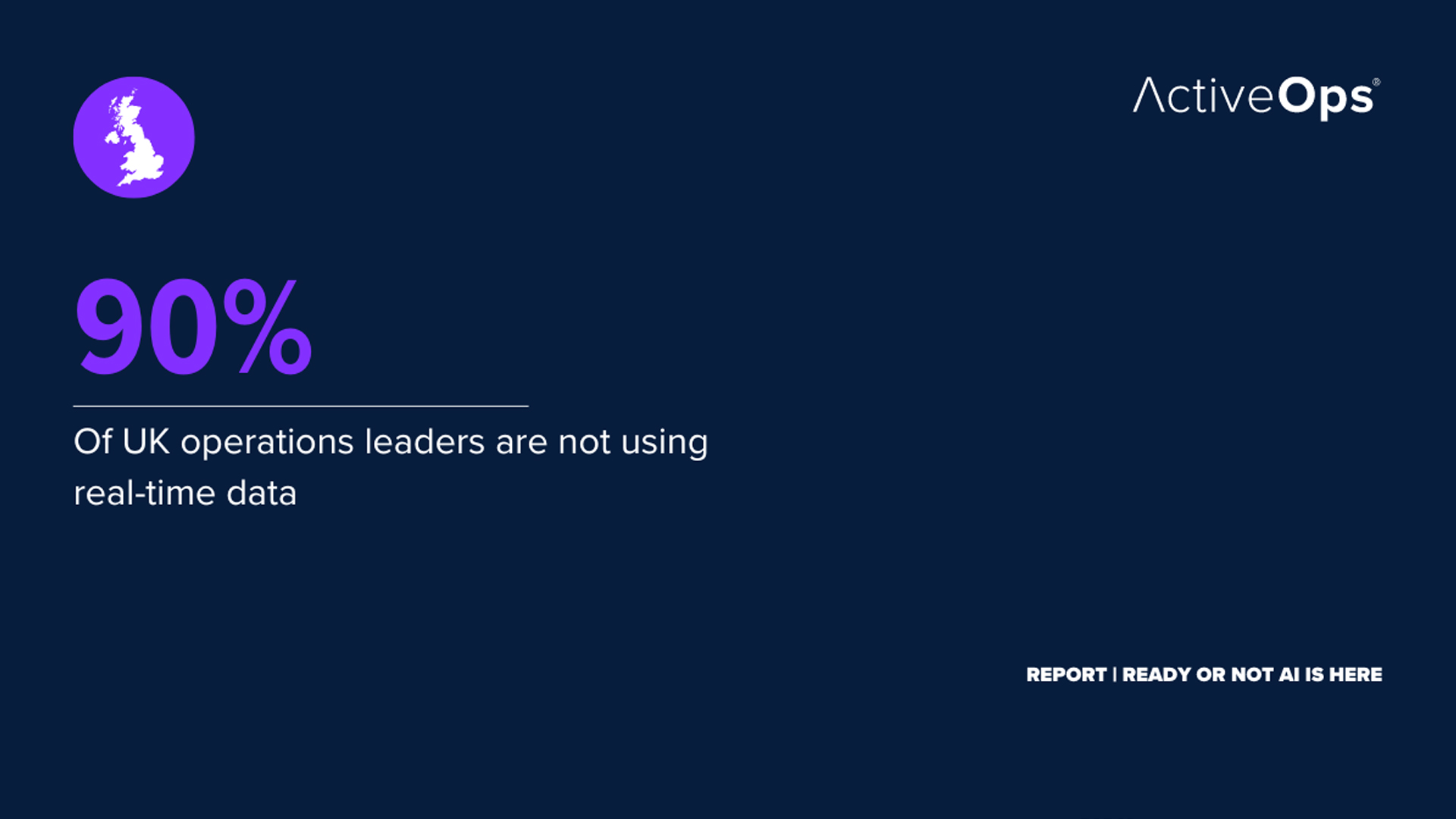
- 90% of operational leaders not using real-time data to make critical decisions
- 85% face significant challenges in getting insight from operational data
- 46% don’t trust their current operational data
Operations leaders within financial services are facing decision paralysis, painting a concerning picture for the industry. The latest research from ActiveOps, provider of AI-powered Decision Intelligence for service operations, has revealed that senior operations heads are struggling to make critical decisions due to poor data – highlighting a concerning state of play that involves significant data issues and challenges that are impacting businesses’ ability to achieve their priorities in 2024.
To better understand the current data landscape, as well as AI adoption and maturity within operations in financial services and uncover the challenges they face with data, ActiveOps commissioned market research of more than 800 Chief Operations Officers, Chief Financial Officers, and Senior Heads of Operations across the globe. This included the UK, Republic of Ireland, US, Canada, Australia, New Zealand and South Africa.
Worryingly, 90% of UK operations leaders are not able to use real-time data to make critical business decisions with almost 30% basing decisions on data that is at least one week old. Accessing data is also extremely difficult, with 85% believing it takes significant effort to get any insights from their operational data. 42% of leaders are also experiencing challenges with inconsistent terms and metrics being used, which is likely having a knock-on effect on how relevant or trusted data seems to teams.
Bhavesh Vaghela, Chief Marketing Officer at ActiveOps said: “It is clear from our research that operations have serious problems with their data. Many have invested heavily in process reengineering and automation to drive efficiencies, and to support digitisation strategies, but have failed to address the fundamental data problem. Managing in an environment of spreadsheets, data siloes and decision making by hunch is not tenable, and operations teams can’t achieve their goals if these challenges and barriers remain.”
34% of businesses are putting an emphasis on business resilience this year – but despite this current performance is low in a number of areas, including cost control, operational performance and risk mitigation, with up to 40% of leaders believing that their organisation is poor or average in these areas.
The picture in the UK is a bleak one, with one in three operations leaders in finance unable to even access the data they need to make real-time decisions, while 41% have data that is irrelevant and almost half (46%) don’t trust their data. One of the biggest issues for operations leaders is having too much data, with 44% of leaders struggling to manage massive volumes of it.
Bhavesh continued: “Effective and consistent decision-making is practically impossible for UK financial services operations leaders. This has a significant impact on businesses as a whole – particularly as business resilience is a priority that encompasses so much of the day to day, from security to business continuity.
“Basing critical decisions on insights that are incomplete, inaccurate and weeks old puts operations on the back foot. In today’s world, where customer demands are so high, speed of decision making to drive productivity and efficiencies becomes a competitive advantage. Leading to faster turnaround times, reducing overtime, limited staff burnout and avoiding costly SLA breaches.”
Despite challenges, there is an indication that operations leaders recognise the power of data if it was accessible, relevant and available in real-time. The key to this is Artificial Intelligence (AI), and financial services companies will need to prepare themselves to embrace this technology so they can realise their potential through decisive decision-making.
Bhavesh concluded: “AI has the potential to transform the world of operations and confidence from operational leaders seems high. However, data holds the key to not only automate processes but to also support human decision making – via predictive and prescriptive insight in real-time.
“It’s time for operations leaders to make significant changes to get their data to a point where it is no longer siloed, and metrics and terms are agreed. Only then can they make the best possible decisions for their business and realise the potential of AI and real-time data, beginning the journey from data drudgery to a leaner, transformed organisation.”
To find out more, read the full whitepaper here.























